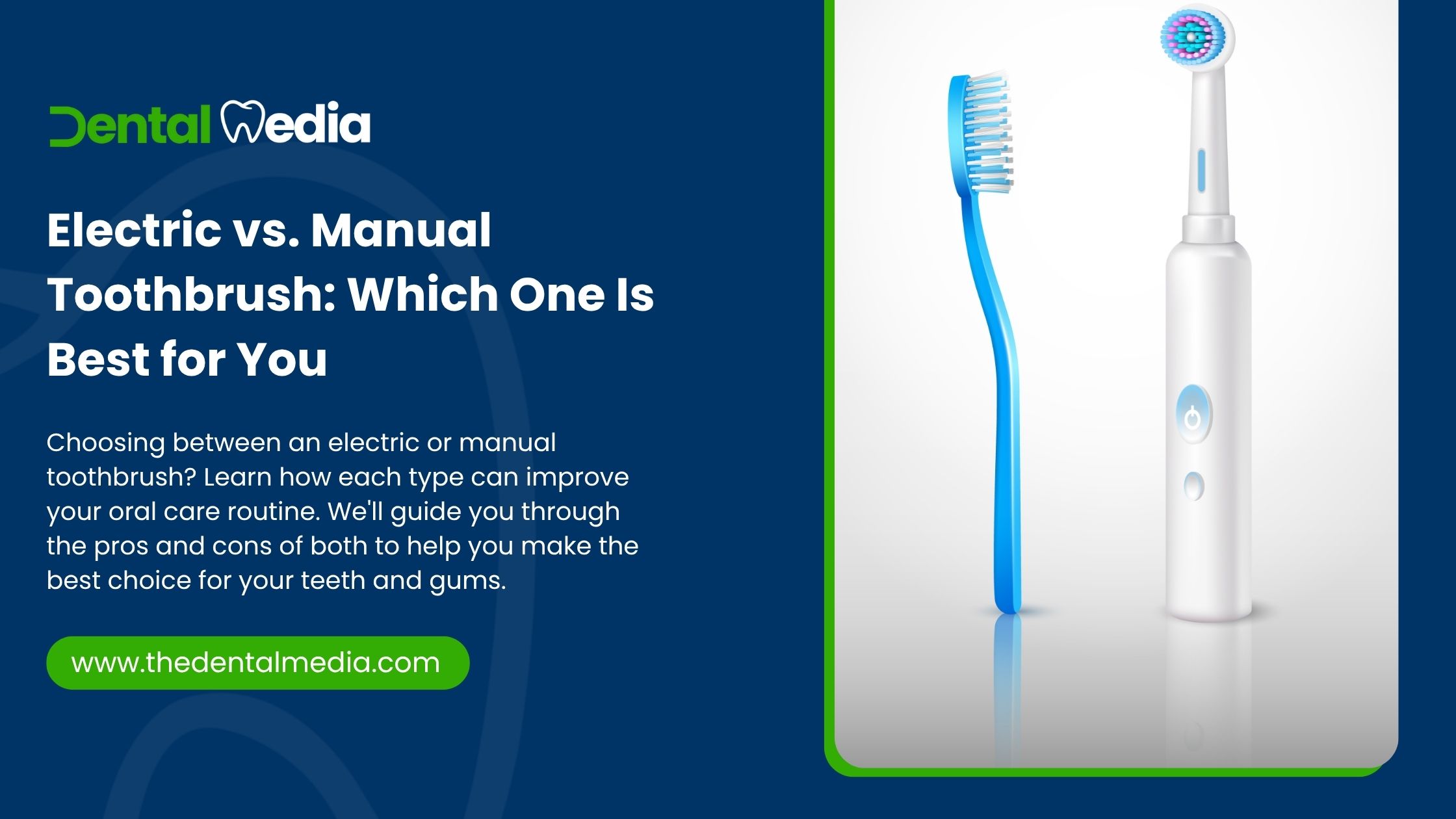When it comes to maintaining good oral hygiene, choosing the right toothbrush is crucial. With so many options on the market, it can be overwhelming to decide whether you should stick to the classic manual toothbrush or upgrade to the modern electric version. While both types of toothbrushes are effective in cleaning your teeth, each comes with its unique benefits and drawbacks. In this blog, we will explore the differences between electric and manual toothbrushes to help you decide which one is best for your oral care routine.
What Are Manual Toothbrushes?
A manual toothbrush is the traditional option that most people are familiar with. It features a handle and bristles, and it requires the user to move the brush manually across their teeth in circular or up-and-down motions. They come in various sizes, shapes, and bristle types, allowing for personalization depending on your preferences and needs.
Pros of Manual Toothbrushes:
- Affordable: Manual toothbrushes are very budget-friendly, often costing just a few dollars.
- Portable: Since they don’t require charging or batteries, manual toothbrushes are great for travel or on-the-go use.
- No Power Source Needed: No need to worry about charging or replacing batteries.
- Customization: There is a wide range of manual toothbrush designs, making it easy to find one that suits your specific needs.
Cons of Manual Toothbrushes:
- Less Effective Plaque Removal: Without the automated motion, manual toothbrushes may not remove plaque as effectively as electric ones, especially for those who have limited brushing techniques or motor skills.
- Requires More Effort: You need to put more physical effort into brushing, which could result in inconsistent brushing or missed spots.
- May Cause Over-Brushing: Many people tend to brush too hard with manual toothbrushes, potentially damaging their enamel or gums.
What Are Electric Toothbrushes?
An electric toothbrush is powered by a motor that makes the brush head oscillate, rotate, or vibrate. These toothbrushes offer a more hands-off approach to cleaning your teeth and are designed to help users achieve more consistent brushing with less effort. They are often equipped with timers, pressure sensors, and various brushing modes.
Pros of Electric Toothbrushes:
- Better Plaque Removal: Numerous studies have shown that electric toothbrushes are more effective at reducing plaque and gingivitis compared to manual brushes. The oscillating or vibrating motion does more work, helping to clean hard-to-reach areas.
- Ease of Use: Electric toothbrushes do most of the work for you, requiring less effort on your part. This makes them ideal for people with limited dexterity or mobility, like the elderly or those with arthritis.
- Built-in Timers: Most electric toothbrushes come with built-in timers to ensure you brush for the recommended two minutes, promoting better oral hygiene habits.
- Less Risk of Over-Brushing: Some models have pressure sensors that alert you if you’re brushing too hard, helping to prevent enamel erosion or gum damage.
Cons of Electric Toothbrushes:
- Expensive: Electric toothbrushes can be quite expensive, with some models ranging from $30 to over $200.
- Requires Charging: Electric toothbrushes need to be charged regularly, which can be inconvenient if you forget to plug them in.
- Less Portable: While they’re great for home use, electric toothbrushes can be bulky and difficult to travel with, especially when you need to carry charging cables and adapters.
Electric vs. Manual: Which One Should You Choose?
Now that we’ve broken down the pros and cons of each, let’s explore the key factors to consider when choosing between an electric or manual toothbrush:
- Effectiveness: If you’re looking for a toothbrush that offers superior plaque removal and improved gum health, electric toothbrushes generally outperform manual ones. Studies have shown that electric brushes can remove up to 21% more plaque and reduce gingivitis by up to 11% after just a few months of use.
- Ease of Use: Electric toothbrushes make brushing easier and more convenient. If you struggle with consistency or manual dexterity (due to age, arthritis, or other conditions), an electric toothbrush may be the better choice. The built-in features such as timers and pressure sensors can also help ensure you’re brushing effectively.
- Cost: While manual toothbrushes are much cheaper than electric ones, the long-term cost of electric toothbrushes can add up due to the need for replacement brush heads, charging, or battery changes. If you’re on a budget, a manual toothbrush may still do the job just fine.
- Convenience: Electric toothbrushes provide an elevated brushing experience with added features such as different modes for sensitive teeth, gum care, and whitening. However, if portability and simplicity are important to you, a manual toothbrush may still be the most practical choice, especially for travel.
Which One is Right for You?
Ultimately, the best toothbrush for you comes down to your individual needs, preferences, and budget. If you’re looking for convenience, improved cleaning, and better plaque removal, an electric toothbrush is the way to go. If you’re on a budget or prefer a more traditional approach, a manual toothbrush can still provide a thorough clean.
Have questions or need expert dental advice? Contact us at TheDentalMedia.com.

